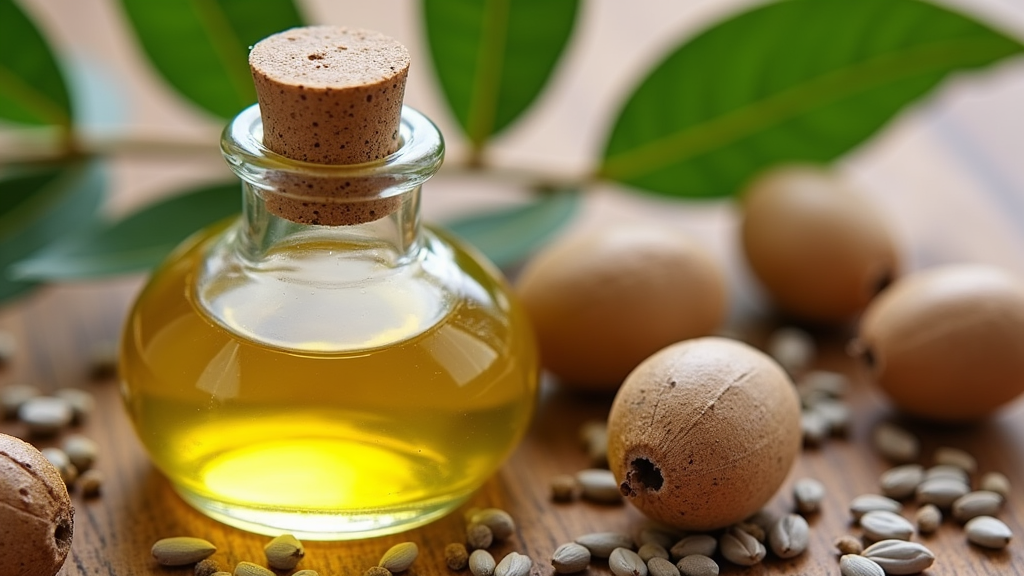Jojoba oil pops up in countless chats around essential oils, especially if you love to put together your own skincare, blends, or massage oils. I’ve found it’s usually among the first carrier oils recommended after standbys like coconut or sweet almond. If you’re looking for an easy to use, reliable carrier oil that links up nicely with a wide range of essential oils, jojoba is definitely worth a closer look. Let me break down why jojoba oil is a smart choice, what makes it unique, and a bunch of practical ways to get the most out of it in your daily routine.

What Sets Jojoba Oil Apart as a Carrier Oil?
Jojoba oil stands out because it’s technically not an oil in the usual sense; it’s actually a liquid plant wax from the seeds of the jojoba shrub. Its structure makes it super stable, meaning it doesn’t go rancid anywhere near as quickly as many other oils. That long shelf life is a plus if you don’t want to worry about your homemade mixtures spoiling before you’ve even used them up.
What’s really interesting about jojoba oil is how similar it is to the natural sebum your skin creates. Sebum is the oil your skin makes to stay moisturized and protected. Since jojoba oil resembles this natural oil so much, it soaks in easily without making your skin feel greasy. That fast absorption and lightweight feel have made it popular for facial serums, body oils, even hair treatments.
You’ll spot people all over—both in scientific studies and natural health sites—talking about jojoba oil’s reputation for being noncomedogenic. Basically, this means it’s less likely to clog your pores compared to heavier oils. If breakouts are a concern, that detail matters.
Why Use Jojoba Oil With Essential Oils?
If you’re mixing essential oils for topical use, you always want a carrier oil to dilute those potent drops. Jojoba oil is ideal for this role thanks to a few key reasons:
- Neutral scent: Jojoba has minimal fragrance, so it won’t overpower or mask your favorite essential oil blends. What shines through is the pure scent of the oils you choose.
- Skin compatibility: Since it matches natural skin oils, jojoba oil helps balance oil production without overwhelming your pores. It works well for most skin types, including sensitive and oily skin.
- Stability: If you’re a fan of making big batches of blends, you’ll find jojoba oil especially handy. You can store your mixtures longer without fearing they’ll go off or sour.
- Quick absorption: It soaks in relatively fast, so you’re not forced to wait forever after applying your mixes. That’s a bonus for facial and body oils or when using it as a massage base.
Getting Started: How to Use Jojoba Oil with Essential Oils
If you’re just starting out making your own blends, jojoba oil is forgiving and easy to manage. Here are some steps to get you going:
- Choose your blend: Pick essential oils depending on your needs—lavender or chamomile for calming, tea tree for spot treatments. Jojoba pairs up smoothly with nearly every essential oil.
- Dilute right: A standard dilution for adults is about 2% essential oil to carrier (roughly 12 drops per ounce of jojoba oil). For sensitive skin or children, aim for 1% or less.
- Mix and store: Blend your jojoba oil and chosen essential oils in a dark glass bottle. Shake it up and you’re set! Store it in a cool, dark place and it’ll keep for months.
Jojoba doesn’t oxidize or spoil as quickly as other oils, so even if you let it sit for a bit, it’s usually still fine. This makes it stress free for anyone jumping into homemade skincare or aromatherapy blends for the first time.
Things to Know Before Buying Jojoba Oil
Adding a new oil to your routine can be fun. Still, here are a few things you’ll want to know before buying jojoba oil:
- Pick cold pressed and organic if possible: These options tend to be less processed, meaning you get more of the oil’s natural benefits without random additives or chemicals.
- Make sure it’s pure: Some products labeled as jojoba oil might be blended or diluted. Always check the label to confirm you’re getting 100% jojoba oil.
- Storage tips: Jojoba doesn’t need refrigeration, but keeping it in a cool, dark cabinet helps it hold up well for years.
Here is a link to check out one of my favorite picks:
“Here’s a little transparency: Our website contains affiliate links. This means if you click and make a purchase, we may receive a small commission. Don’t worry, there’s no extra cost to you. It’s a simple way you can support our mission to bring you quality content.”
Choosing the Right Jojoba Oil
If you want to get picky, and sometimes it’s worth it, go for golden jojoba oil. This raw, unrefined variety keeps all the good stuff from processing. You may also see “clear” or “refined” jojoba oil at the store—those work, but they’ve lost a lot of their nutrients during processing. Golden jojoba is my go-to for skincare.
Understanding Allergies and Skin Sensitivity
Most people handle jojoba oil with no issues. However, a quick patch test is always smart when trying anything new, especially if your skin has a mind of its own. True allergies are rare, but if you get redness or itching, stop using it and rinse the area with cool water.
Creative Ways to Use Jojoba Oil
I’ve experimented a lot with jojoba oil, and here are some favorite uses for it. It’s awesome for non greasy, easy application. Try it in these ways:
- Face serum base: Mix a few drops of your favorite essential oils with jojoba and use as a nourishing, lightweight moisturizer.
- Massage oil: Jojoba spreads well, absorbs swiftly, and isn’t likely to stain sheets or clothes—unlike some heavier oils.
- Makeup remover: It melts makeup, even waterproof varieties, without leaving your skin stripped or dry.
- Hair and scalp treatments: Add jojoba to your scalp or hair ends with rosemary or peppermint essential oils for a boost.
- Cuticle oil: Dab a few drops on nails and cuticles for quick hydration and to help with rough skin.
Comparing Jojoba Oil to Other Carrier Oils
Coconut oil, sweet almond oil, grapeseed oil, and argan oil are common carrier oils you’ll hear about. Each has its own perks, but jojoba brings some cool advantages to the table:
- Less greasy feel: Jojoba oil soaks in quicker than coconut or olive oil, making it more practical for day to day skin care.
- Extra long shelf life: Jojoba sticks around without going bad faster than grapeseed or sweet almond oil.
- Works for more skin types: Even if you have sensitive or oily skin, jojoba fits in without causing trouble, while heavier oils might make things worse.
- Non-staining: Its quick absorption means it usually won’t leave marks on clothing or bedding.
All these details make jojoba a great choice if you want an all-in-one carrier oil for most projects.
Frequently Asked Questions
Question: Is jojoba oil safe for facial use?
Answer: Yes, jojoba oil is widely considered safe for the face and is a favorite for not clogging pores. Always do a patch test first if you haven’t tried it before.
Question: Can jojoba oil go bad?
Answer: Jojoba oil lasts a long time (even up to five years) thanks to its waxy structure. Store it away from direct heat and sunlight for best results.
Question: Does jojoba oil stain clothes or sheets?
Answer: It absorbs quicker and leaves less residue than heavier oils, so it’s less likely to cause stains. Still, let it soak in a bit before coming into contact with fabrics.
Question: How much essential oil should I put in jojoba for skincare?
Answer: For most uses, go for a 1-2% dilution—about 6-12 drops essential oil per ounce of jojoba. Use less for kids or delicate skin.
The Takeaway: Why Jojoba Is a Smart Choice
Jojoba oil keeps things simple and safe when you’re working with essential oils. Its long shelf life, gentle touch, and versatility with all skin types make it a standout carrier for everything from basic blends to more advanced home creations. Whether you’re new to essential oils or want to take your DIY routine up a notch, jojoba oil deserves a spot on your shelf.
